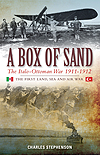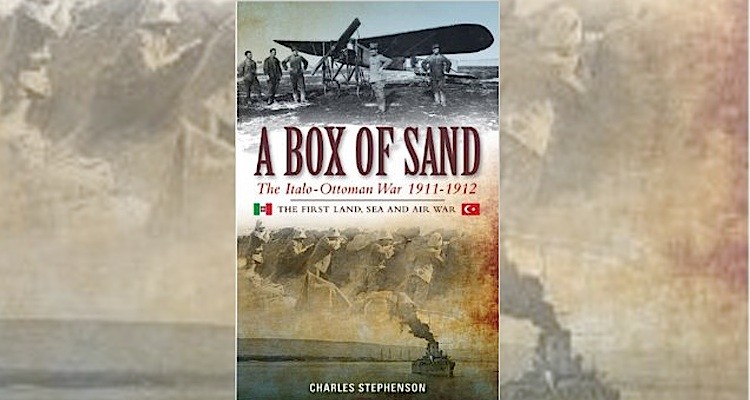
A Box of Sand: The Italo-Ottoman War, 1911–1912, by Charles Stephenson, Tattered Flag, Ticehurst, England, 2014, $22.95
With the centennial of World War I upon us it is worthwhile to reflect on the events that brought about that monumental conflict. Among them is the 1911 war between Italy and the Ottoman empire. The conflict had far-reaching effects with present-day reverberations. From a military standpoint it is notable as the first war in which armored vehicles and airplanes played a role. On a political level it was equally important, as it precipitated the creation of the state that became modern-day Libya.
A newcomer among the modern-day European great powers, Italy was eager to jump on the imperial bandwagon and establish its own colonies in Africa. With that in mind, along with an awareness of the Ottoman empire’s weakness, Italy invaded Turkey’s North African territories of Cyrenaica and Tripoli.
The ensuing conflict was the first to combine land, sea and air elements to achieve victory. While Italy swiftly deposed Turkey as ruler over the region, however, it had a far more difficult time imposing its rule over local inhabitants. The conflict degenerated into a guerrilla war for which the Italians were not prepared and which dragged on for decades. Hostilities ceased only when the Allies drove the Italians from the country during World War II.
A Box of Sand is the first English-language study of a conflict that set the stage for World War I as well as much of the current political situation in Libya. It is a must for students of military history, particularly events in the present-day Middle East and North Africa.
—Robert Guttman





